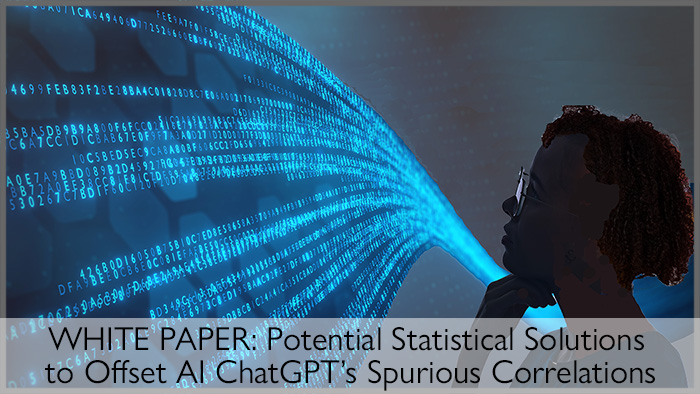WHITE PAPER: Potential Statistical Solutions to Offset AI ChatGPT's Spurious Correlations
by KATHY GRAHAM

- Statistical spurious correlation is dangerous because it can make some readers think that one variable “causes” another when there is no linear relationship between the two (Statology, 2021, 2022). The magnitude of the spurious correlation problem for big search data is very large (Richman & Roberts, 2023) and getting worse with the increasing use of AI—one study suggests these risks are creating “building blocks for a new type of ignorance that is not an absence of knowledge, but the presence of something masquerading as it” (Richman & Roberts, 2023).
- Businesses require valid and reliable big data to run their global operations profitably and efficiently, yet AI, including Chat-GPT, generates false or misleading information (Paul et al, 2023), even fabricating references (Gravel et al, 2023) phrased so well that “a user, a consumer, or others…can be swayed by the appearance of authority (Viswanathan, 2023).”
- How do businesses make profitable, efficient decisions if there exists a sizeable and growing large-scale production of information that plausibly distorts data integrity (Pamies, 2023)? As a human capital consultant to C-Suite executives and Board Directors, I decided to use this final project to suggest how statistics could neutralize AI’s big data negative impacts (Paul et al, 2023) by quickly ruling out suspect sources. …
Get the PDF of this White Paper including References by contacting Forecasts@TheHQCompanies.com.

